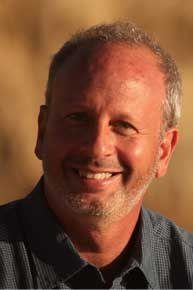The Science, Policy and Practice of Nature Based Solutions for Climate Change
The OPERANDUM project hosts a keynote lecture by lead marine scientist Michael W. Beck (University of California Santa Cruz). Please register online
-
Date: 03 JULY 2018 from 16:45 to 18:30
-
Event location: Complesso di Santa Cristina, piazzetta Morandi 2, 40125 Bologna, Italia
-
Type: lectures
Programme
16:45 - 17:15 Registration
17:15 - 17:30 Introduction
Silvana Di Sabatino, OPERANDUM coordinator (University of Bologna)
17:30 - 18:30 Keynote lecture
The Science, Policy and Practice of Nature Based Solutions for Climate Change
Michael W. Beck (The Nature Conservancy and University of California Santa Cruz, US)
Abstract of the Keynote Lecture
Wetlands and reefs serve as barriers, buffers, and breakwaters from rising seas, swell, and storm surge. Until recently, it was not possible to put a value on the flood protection benefits from these nature based solutions. This is changing rapidly, however, and recent studies are showing surprising results. Salt marshes can reduce annual flood damages by at least 15 percent. Mangroves can reduce annual flood damages to people and property by 25 percent across the entire nation of the Philippines – a nation that sees more super storms and typhoons than almost anywhere else. Without coral reefs damages from storms would double; they avert billions of dollars in flood in flood damages every year. The protection from coastal habitats is cost-effective as well, particularly when compared to built or gray infrastructure such as seawalls or dikes. A new study uses insurance industry-based models to show that every $1 spent on restoring marshes and oyster reefs on the American Gulf Coast reduces storm damages by $7. This talk will summarize high-level findings from the latest research on the ecology, engineering, and economics of nature based solutions and identify where these can inform innovative tools in insurance and policy.

Michael W. Beck
Lead Marine Scientist
Dr. Michael W. Beck is the lead marine scientist for The Nature Conservancy and an adjunct Professor in Ocean Sciences at the University of California Santa Cruz, where he is based.
Mike works on coastal marine conservation in 5 continents across science, business and policy to bring clear tools and results to decision-makers. Mike focuses on building coastal resilience in the interface between adaptation and conservation, where he works to reduce risks to people, property and nature.
Mike has authored more than sixty peer-reviewed science articles. His work covers topics from the role of coral reefs in reducing risks from storms to the effects of people on extinctions of Pleistocene mammals.
He has also published numerous popular articles including Op-eds in the Miami Herald, NY Times, Huffington Post and Caribbean Journal.
He was a Fulbright Fellow and an Australian Research Council Postdoctoral Fellow at the University of Sydney. He has served on advisory boards and panels for NOAA, EPA and the National Academy of Sciences. And in 2012, Mike was selected as a Pew Marine Conservation Fellow.
Iscriviti all'evento
- Registration Published
Venue
Complesso di Santa Cristina, piazzetta Morandi 2, 40125 Bologna